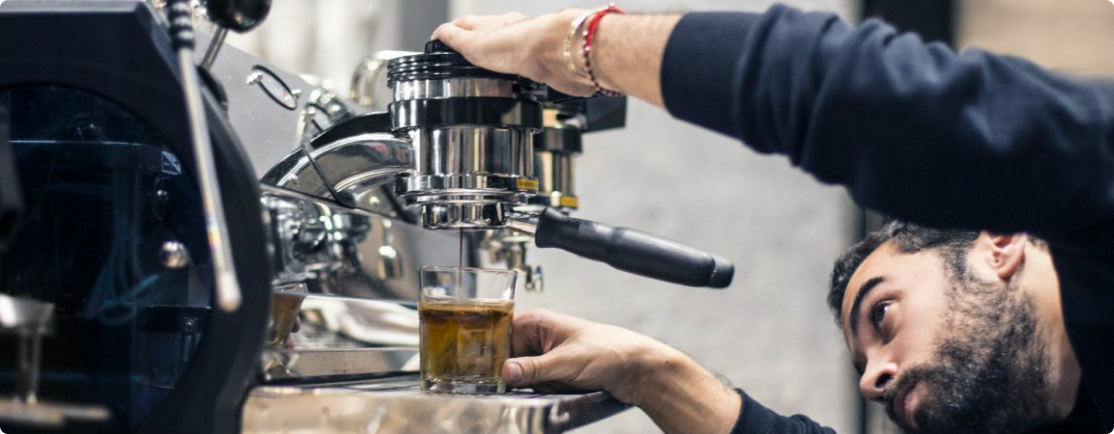
Espresso Machines 101
An espresso machine, like every other kitchen appliance, is bound to break down at some point during usage. However, unlike other appliances that stop working, an espresso machine seizing up could be a lot more frustrating.
One of the leading causes of espresso machine problems. Yeah, it’s scaling, mineral deposits that form inside espresso machine boilers and plumbing. So today, a method for determining if your water has characteristics that may cause scale to form.
The Langelier Saturation Index
So we’re going to get a little technical here and take a look at how to use the Langelier Saturation Index, or LSI, to determine the scaling potential of the water going into your espresso machine. Now if geeky isn’t your thing there are a couple of ways around it. First is to use a proper water filter on your equipment and do some regular descaling. Another option is to make your own brew water that meets Specialty Coffee Association standards. Use the link here for my video that shows you how to do that by re-mineralizing distilled or pure reverse osmosis water. Incidentally, the make your own option results in water with a very low scaling potential.
So here’s an online LSI calculator. It’s very easy to use and I’ll show you how. What you need to use it are five pieces of information: water temperature, pH, TDS which is total dissolved solids, the calcium level and alkalinity. After we plug in the numbers, the calculator will give us an idea of how likely scale is to form.
The easy and free way to get your numbers is to contact your water provider or check their website. That’s what I did. The numbers I needed were buried in a non-obvious link, so I called the local water authority and they helped me find them. Most water providers in the U.S. should have this information available, so check their website or give them a call. If you can't you can’t get it from your water provider or want to know exactly what’s coming out of your tap, in a future video I’ll show you how to test it yourself or get someone to do it for you, maybe even for free.

Using the LSI Calculator
Here’s a list of my numbers, so let’s plug them into the LSI calculator.
For temperature I’m going to use 264 degrees Fahrenheit. That’s the temperature my steam boiler is set to and you want to use the highest temperature your boiler might reach. My average pH is 7.5. Total dissolved solids average 188 parts per million. My calcium level is 34 milligrams per liter, which is measured as the ion, so I’m selecting the C-A two plus radio button here. The other option there is a measure of calcium hardness as CaCO3, that’s calcium carbonate, so be sure to use the right one. And finally, my alkalinity is 88 milligrams per liter.
With all the numbers in I press “calculate now” and my LSI comes in at plus 0.94. Looking at the chart I can expect some mild scale coating and the general recommendation is treatment may be needed.
How to Prevent Scale in Different Machines
So based on the results my tap water is likely to cause some minor scale, but unlikely to cause major scale problems with proper treatment. Now keep in mind the LSI is just an indication of scaling potential, things could turn out differently in real world use. But based on the results my plan is as follows: For a super-automatic espresso machine I’d use the manufacturer recommended water filter. They contain carbon for chlorine removal and softening to reduce the hardness a bit and prevent scale. The thermoblock boilers in super-automatic machines have very narrow passages. Scale build-up in those can seriously affect performance and left unchecked can cause premature machine failure.
For semi-automatic machines there are a couple of options. For a plumbed-in prosumer level machine I’d go with an inline cartridge system using the BWT Bestmax Premium filter. It has the carbon filtration for chlorine removal, but its real benefit is a patented ion-exchange section which replaces excess calcium with magnesium. This process reduces water hardness without adding sodium, which is what happens with most every other water softening filter or system. With proper use the BWT bestmax premium system provides a mineral level that maintains flavor without causing scale build-up. Use this filter and you never have to descale your machine. It protects your investment, gives you piece of mind and great tasting espresso.
For a reservoir-fed machine I’d use the BWT Bestsave M Anti-Scale Filter. Very easy to use, just drop in your machines reservoir and you are good for about 2 months. It takes care of chlorine with carbon and has the same patented calcium - magnesium ion-exchange technology used in their in-line premium filter. If you’d like to learn more about the BWT filter systems use this link. With their ion-exchange technology they are the best in the business.
Again, here is the link for the LSI calculator. If you search for an LSI calculator be aware many you find may not allow input of the higher temps found in espresso machine boilers.
Thanks for reading and I hope to have you back soon for more of the good stuff on everything coffee brought to you by Whole Latte Love.

Leave a comment